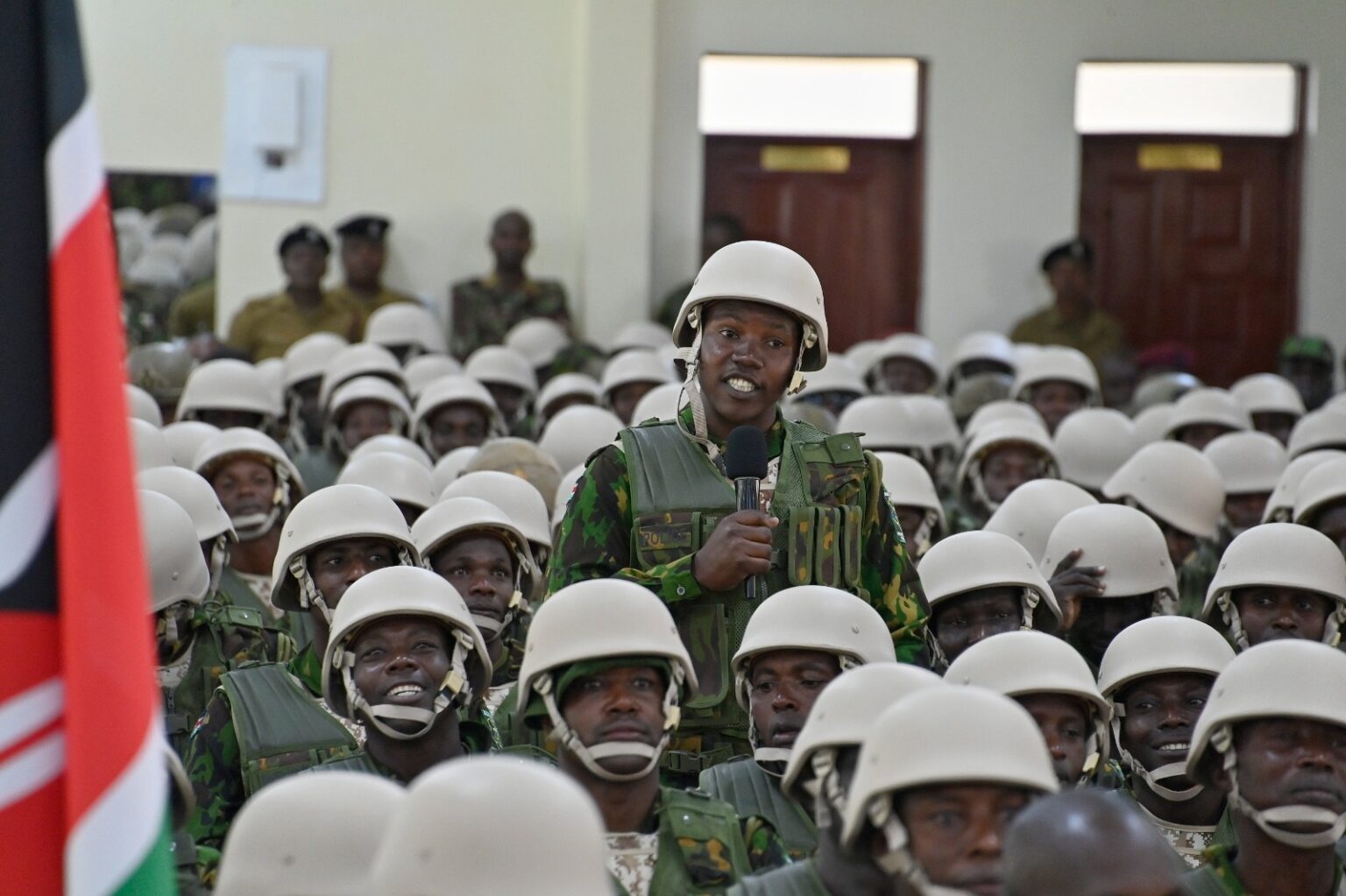- The deployment is part of a larger mission led by Kenya to restore order in Haiti, where gangs have taken control of most of the capital, Port-au-Prince.
- Gangs in Haiti have been responsible for widespread killings, kidnappings, and sexual violence.
- Police officers from Jamaica, the Bahamas, Barbados, Chad, and Bangladesh set to form part of the 2,500-international force.
Kenyan police depart for Haiti
The first group of Kenyan police officers has departed for Haiti to address the rampant gang violence plaguing the Caribbean nation. The deployment is part of a larger mission led by Kenya to restore order in Haiti, where gangs have taken control of most of the capital, Port-au-Prince, and have been responsible for widespread killings, kidnappings, and sexual violence.
Kenya’s commitment to leading this international force dates back to July 2023, when it volunteered to spearhead efforts to tackle the violence in Haiti. The mission, which includes contribution of police officers from Jamaica, the Bahamas, Barbados, Chad, and Bangladesh, is primarily funded by the United States and sanctioned by a UN Security Council resolution passed in October 2023. The Kenyan contingent forms a significant part of this 2,500-strong international force.
“Kenya has solid credentials in peace-making and conflict resolution globally. Our police officers’ presence in Haiti will give relief to the men, women and children whose lives have been broken by gang violence. We will work with the international community to bring lasting stability in Haiti,” said President William Ruto in Nairobi while flagging off the first contigent of police to Haiti.
The deployment has faced multiple delays due to legal challenges in Kenya and the worsening security situation in Haiti, which recently led to the resignation of Haiti’s acting prime minister in March. However, the Kenyan government secured the necessary agreement to send police officers abroad on March 1, 2024. Despite a fresh lawsuit from a small opposition party in Kenya aiming to block the deployment, preparations are underway.
According to four officers involved in the mission, their weapons and personal belongings were collected on Sunday evening in preparation for departure, Reuters reported. An initial group of several hundred officers will leave first, followed by the remainder of the 1,000-strong Kenyan contingent.
The mission’s urgency and importance were underscored by President William Ruto, a strong advocate of the deployment. He recently announced that the departure would occur within weeks. This week, a senior police official confirmed to Reuters that the team would leave for Haiti on Tuesday, with two advance teams already dispatched last week.
The Kenyan officers’ mission is to stabilize the situation in Haiti, where gang control has severely disrupted daily life and governance. The gangs’ grip on Port-au-Prince has made it nearly impossible for the Haitian government to operate effectively, with armed groups exerting significant influence over the local population.
By deploying its police force, Kenya aims to help restore peace and security, enabling the Haitian government to regain control and provide essential services to its people. This move also reflects Kenya’s growing role in international peacekeeping and its commitment to supporting global efforts to combat violence and instability.
The success of this mission will depend on the cooperation between the international forces and the local Haitian authorities. The challenges are immense, given the entrenched power of the gangs and the fragile state of Haiti’s institutions. However, the deployment of Kenyan police officers marks a critical step towards a broader international effort to bring stability to Haiti and alleviate the suffering of its people.
The Scale of Gang Violence in Haiti
Haiti, a nation already struggling with political instability and economic challenges, faces a dire situation exacerbated by rampant gang violence. The proliferation of gangs has significantly worsened the humanitarian crisis, affecting all aspects of life for the Haitian people.
Gangs in Haiti have become increasingly powerful, controlling large swathes of territory, particularly in the capital, Port-au-Prince. These gangs engage in extortion, kidnapping, and armed confrontations, creating a pervasive atmosphere of fear and insecurity. The United Nations estimates that over 60 percent of Port-au-Prince is under gang control, severely restricting movement and access to essential services for residents.
Humanitarian Impact
The impact on the civilian population is devastating. Thousands of people have been displaced as a result of gang violence, often forced to flee their homes with little to no warning. These internally displaced persons (IDPs) live in precarious conditions, lacking adequate shelter, food, and healthcare. The constant threat of violence has also disrupted education, with many schools closed or inaccessible, depriving children of their right to education.
Moreover, gang-related violence has strained Haiti’s already fragile healthcare system. Hospitals and clinics in gang-controlled areas often face shortages of medical supplies and staff, who are unable to reach their workplaces safely. This situation is particularly critical given the ongoing cholera outbreak, which requires immediate and effective medical response.
Economic Consequences
The economic repercussions of gang violence are profound. Businesses are forced to close or relocate due to extortion and insecurity, leading to job losses and reduced economic activity. Transporting goods becomes perilous, disrupting supply chains and leading to shortages of basic commodities. The agricultural sector, a crucial part of Haiti’s economy, is also impacted as farmers cannot safely access their fields.
Government Response and Challenges
The Haitian government’s response to the gang crisis has been largely ineffective. Law enforcement agencies are under-resourced and often outgunned by gangs. Corruption and political instability further complicate efforts to restore order. The government’s inability to maintain security has eroded public trust and left communities feeling abandoned and vulnerable.
International Involvement
International organizations and foreign governments have provided some support, but the scale of the crisis demands a more robust and coordinated response. Humanitarian aid is essential to address the immediate needs of those affected by the violence. However, long-term solutions require a comprehensive strategy that includes security reforms, economic support, and political stability.
Read also: Kenya welcomes UN call to combat Haitian gang violence

